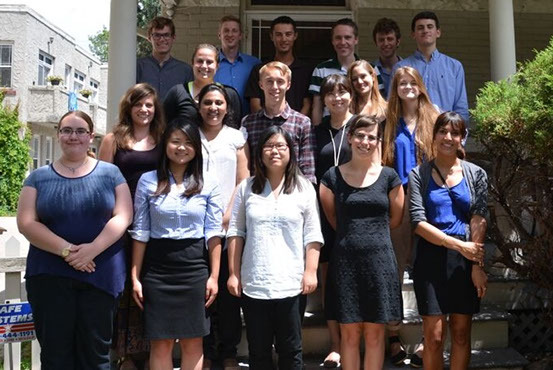If you want a great job after you graduate, stop stressing about your GPA, and start looking for an internship. Studies by Forbes, US News & World Report show that students who complete an internship are more likely to secure a job when they graduate. Nearly 70 percent of companies with more than 100 employees eventually offer full-time jobs to their interns. One study even found that students with perfect GPAs had a harder time finding a job than their peers with lower GPAs and more internship experience. As evidence grows of internships' benefits, increasing numbers of small and large universities are including them in graduation requirements.
Gone are the days when the only thing interns learn is a coffee order. Businesses know that to attract talented interns, they have to offer practical and exciting opportunities. Tom Hanks and Oprah Winfrey both got their first jobs because of internships; Steve Jobs and Steve Wozniak met while they were both interns at Hewlett-Packard. Interns that show professionalism and demonstrate their creativity gain a network of people who can mentor them, give recommendations, and collaborate on future projects. In addition to building their on-the-job skills and experience level, they deepen their understanding of their strengths and weaknesses, their work-environment preferences, and their long-term goals. They may also discover new interests as they interact with different departments within the company.
Internships aren't just for college students: a growing number of high school students are seeking and obtaining summer or after-school internships. On college applications, high school students can include internships on their list of extracurricular activities -- which is especially important as admissions offices look beyond GPA and test scores to find well-rounded students -- and write about their internship in essays. Those not planning to attend college will likely find the transition to the workplace smoother if they have been exposed to the professional world through an internship. Adults in career transition can demonstrate the skills from their former field that transfer to their new one in ways that might not be obvious on a resume.
Interns and businesses get to know each other in ways that are impossible in a typical job interview. For those who are entering the workforce for the first time, an internship provides valuable lessons in several intangibles, including the pace of the workday, Rather than asking an applicant how quickly they learn or how well they're able to multi-task (and almost certainly receiving a prepared response that may or may not be true), businesses see for themselves whether an intern is a good fit.
Resources for finding an internship range from the old-fashioned face-to-face conversation to websites that match interns to positions the way dating sites match potential mates. Teachers and professors often know of local opportunities, and when they're aware of a student's interests, they are more likely to remember that student in the future. Career Services offices on college campuses have a wealth of information for current students and alumni, and can give critical advice when applying for competitive internship positions. For those interested in STEM careers, energy.gov has programs for middle- and high-schoolers, college students, and adults. USAJobs.gov has special search options for students and recent graduates who want to work in the public sector. Internships.com allows seekers to search opportunities all over the country, and helps students put together their resume. A quick search on LinkedIn can generate hundreds of potential options, no matter the applicant's field. Companies and non-profit organizations often post information about their internship positions on their websites.
What an intern gets out of their experience usually depends on what they put in. Preparation is key: interns-to-be should identify the factors most important to them (paid or unpaid, number of hours, independent or collaborative work) and double-check that internships they apply for meet those criteria. Talking early and often with supervisors about mutual expectations and progress will ensure both that the internship is a valuable experience and that a strong relationship forms between the intern and others at the company. Offering extra help, when possible, attracts the appreciation of supervisors and peers, and can also lead to learning new, valuable skills. Keeping a record of all the tasks and projects completed during the internship is vital, not only for building your resume but also holding your employer accountable.
Interns should take steps to ensure that, with today's competitive job market, they are not taken advantage of for their skills and ambitions. Instead, confirm that under the Fair Labor Standards Act the internship with a 'for profit' company is: similar to training received in a classroom, beneficial to the intern, supplemental and not displacing the work of a paid employee, does not provide immediate advantage to the employer, not a definite pipeline to a paid position, and if it is unpaid, must provide college credit.
Whether creating marketing materials for a tourism office, assisting with set designs for a movie, contributing to zoological research, or working for a political campaign, internships provide the kind of hands-on experience that employers want their new employees to have.
